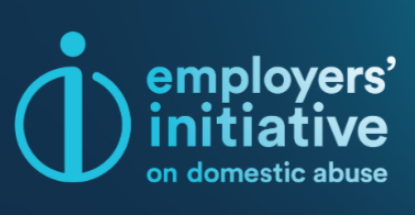Listen to Us!
Supporting trusted adults to talk to young people without judgment, agenda or expectation.

Supporting trusted adults to talk to young people without judgment, agenda or expectation.


How to be a good listener | YoungMinds
https://www.youngminds.org.uk/professional/resources/how-to-be-a-good-listener/
Supporting a young person to get help | YoungMinds
https://www.youngminds.org.uk/professional/resources/supporting-a-young-person-to-get-help/
Building supportive relationships with young people | YoungMinds
https://www.youngminds.org.uk/professional/resources/building-supportive-relationships-with-young-people/
When to check in with a young person | YoungMinds
https://www.youngminds.org.uk/professional/resources/when-to-check-in-with-a-young-person/
Sleep problems | YoungMinds
https://www.youngminds.org.uk/young-person/my-feelings/sleep-problems/
Transitioning from school to further education | YoungMinds
https://www.youngminds.org.uk/professional/resources/transitioning-from-school-to-further-education/
Staying mentally healthy during exams | YoungMinds
https://www.youngminds.org.uk/professional/resources/staying-mentally-healthy-during-exams/
Building positive mental health | | YoungMinds
https://www.youngminds.org.uk/professional/resources/building-positive-mental-health/
How to have a conversation with young people about mental health | YoungMinds
https://www.youngminds.org.uk/professional/resources/how-to-have-a-conversation-with-young-people-about-mental-health/
Low mood | YoungMinds
https://www.youngminds.org.uk/professional/resources/mood-battery/
Responding to Black young people reaching out for mental health support | YoungMinds
https://www.youngminds.org.uk/professional/resources/responding-to-black-young-people-reaching-out-for-mental-health-support/
Supporting a young person struggling with anxiety | YoungMinds
https://www.youngminds.org.uk/professional/resources/supporting-a-young-person-struggling-with-anxiety/
Supporting a young person struggling with self-harm | YoungMinds
https://www.youngminds.org.uk/professional/resources/supporting-a-young-person-struggling-with-self-harm/
Stress bucket activity | YoungMinds
https://www.youngminds.org.uk/professional/resources/stress-bucket-activity/
Supporting a young person struggling with anxiety | YoungMinds
https://www.youngminds.org.uk/professional/resources/supporting-a-young-person-struggling-with-anxiety/
Supporting a young person struggling with self-harm | YoungMinds
https://www.youngminds.org.uk/professional/resources/supporting-a-young-person-struggling-with-self-harm/
Body image | YoungMinds
https://www.youngminds.org.uk/young-person/coping-with-life/body-image/
Supporting refugee and asylum seeking children | YoungMinds
https://www.youngminds.org.uk/professional/resources/supporting-refugee-and-asylum-seeking-children/
Understanding trauma and adversity | YoungMinds
https://www.youngminds.org.uk/professional/resources/understanding-trauma-and-adversity/
Bullying | YoungMinds
https://www.youngminds.org.uk/parent/parents-a-z-mental-health-guide/bullying/
Helping a young person manage anger | YoungMinds
https://www.youngminds.org.uk/professional/resources/helping-a-young-person-manage-anger/
Coping with family difficulties | YoungMinds
https://www.youngminds.org.uk/young-person/coping-with-life/family/
Grief and loss | YoungMinds
https://www.youngminds.org.uk/young-person/my-feelings/grief-and-loss/
Loneliness | YoungMinds
https://www.youngminds.org.uk/young-person/my-feelings/loneliness/











